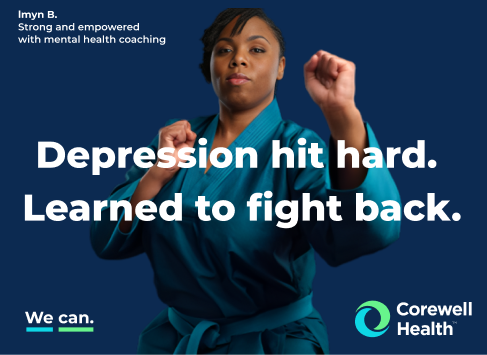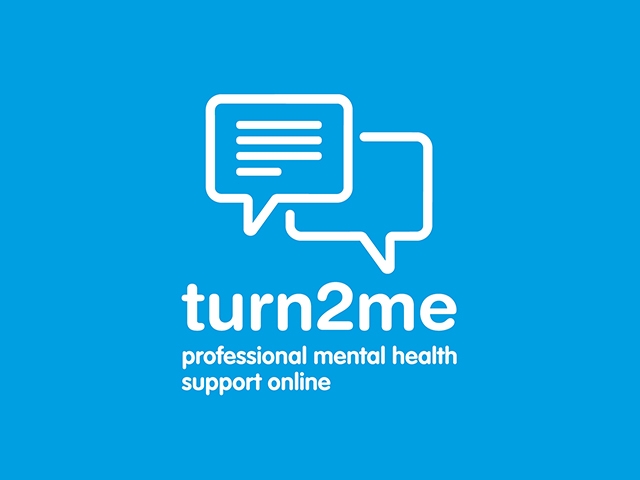Use to help with insomnia.


Sometimes we talk about mental and physical health as if they are separate. The truth is, they’re not just related, they’re connected. Mental health is health, and it takes the mind and body working together to create overall well-being. The good news? Small lifestyle changes can make a difference, and even a small step can help you get started on a path to wellness.

Imyn can. We can.
“You are in charge of your body,” says Imyn. “When I eat well, I notice a big difference. My son motivated me to get into Taekwondo. I believe my experience has helped him a lot through mental health.”
Take 5: Mind + Body Connection video series
Our experts share how our mind and body affect each other and offer practical lifestyle guidance, sharing small steps that can get you on a path to improving your well-being. Like Imyn, We can.
Mind
Sleep
Nutrition
Movement
Helpful apps and resources
Build a healthy lifestyle
Working to improve your lifestyle can help you increase energy, reduce stress, improve sleep, reduce your risk of illness, and overall just help you feel better.

Mental and physical health tips
Tips for children
Building habits together with your children will have a lifetime of positive impact.
Tips for teens
Teen years are critical formative years to build connection of physical health and mental strength and improve chances of coping long term.
Tips for LGBTQIA+
Many LGBTQIA+ identified persons deal with anxiety & depression at some point. It's important to pay attention to physical and mental health habits.
Tips for Adults
Mental health is essential for physical well-being. Discover how small changes can make a big difference.
Checking in on mental health
The following talking points can help you start a conversation with someone that may need some help or a listening ear. It’s also a great resource if you want to talk with someone but aren’t sure where to begin.

Knowledge is power
We all experience mental health challenges from time to time. Each of us has a different story, unique feelings and personal experiences. Understanding mental health is the first step towards improving it, for yourself and for those you care about.










